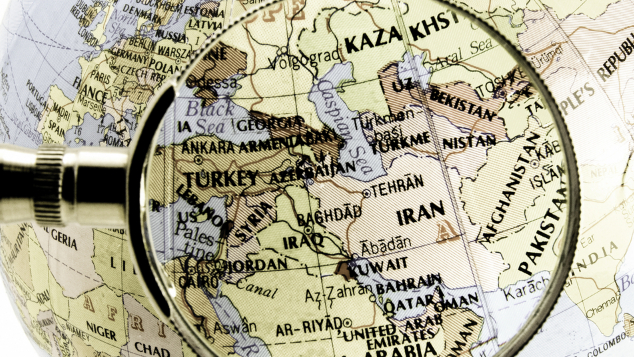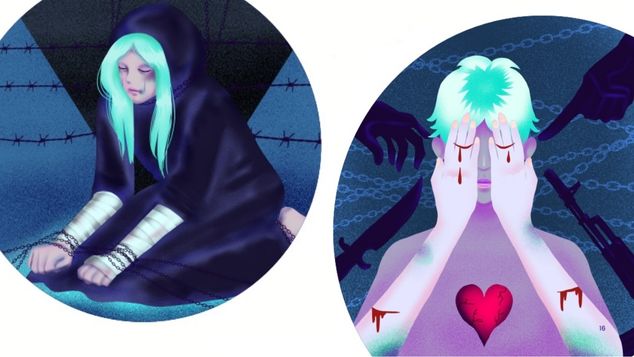
A new report released by Outright International has highlighted that the Taliban returned to power in August 2021 has left many lesbian, gay, bisexual, transgender, intersex and queer Afghans fearing for their lives.
Titled A Mountain of My Shoulders: 18 Months of Taliban Persecution of LGBTIQ Afghans the report outlines that hundreds of people have sought to leave the country with help from foreign governments and non-government organisations, while many who could not leave have been forced into hiding.
Between September and October 2022, Outright International interviewed 22 LGBTIQ Afghans, all of them currently in Afghanistan. Their accounts suggest that Taliban security officials now appear to be pursuing LGBTIQ people – especially gay men and trans women – more systematically than in the first few months of Taliban rule, subjecting them to physical and sexual assault and arbitrary detention.
In several cases, the authorities have subjected people to public flogging for alleged same-sex relations, and the Taliban Supreme Court, on social media, has confirmed and defended the implementation of these punishments.
The latest publication follows an initial report launched in January 2022, which was a collaboration between Outright International and the Human Rights Watch.
Outright International say the latest findings show that the Taliban has now concentrated its efforts to target LGBTIQ people, with complete impunity, and the risk of violence has made it equally challenging for LGBTIQ Afghans to seek access to humanitarian assistance.
The report concludes with recommendations made to the de facto Taliban authorities, the United Nations system, bilateral partners, international humanitarian organizations, and technology companies.
“In the 18 months since the Taliban’s return to power, we witnessed the excruciating deterioration of humanitarian conditions for LGBTIQ Afghans,” noted Maria Sjodin, Executive Director of Outright International.
“No one should live in constant fear, discrimination, and violence simply because of their sexual orientation or gender identity. We call on the United Nations and international governments to continue their efforts to hold the Taliban accountable against any form of human rights abuses and ensure that access to basic human needs are not undermined.”
Neela Ghoshal, Outright’s Senior Director of Law, Policy and Research said LGBTIQ+ people in Afganistan were being overlook by humanitarian organisations.
“LGBTIQ people are among the most vulnerable populations in conflict settings and under authoritarian regimes,” Ghoshal said. “The Taliban’s undisguised hostility toward sexual and gender diversity doubles the risk level LGBTIQ Afghans face. Their safety should be paramount, yet LGBTIQ Afghans’ voices and concerns continue, inexplicably, to be excluded — in UN human rights reporting, in negotiations, in humanitarian planning.”
Outright International highlights that the United Nations Assistance Mission in Afghanistan (UNAMA), which coordinates the UN’s work in the country, did not mention abuse of LGBTIQ people at all in the human rights report it published in July 2022.
Basira Paigham, co-founder of the Afghan LGBT Organisation and a research consultant on the Outright report said the stories being shared showed how people were living in fear.
“I interviewed people who were beaten and raped, persecuted by their families, and permanently injured — all for simply being themselves. In today’s Afghanistan, there is no one they can turn to for help or anywhere safe for them to run to,” Paigham said.
Outright International are calling on the UNAMA to take action on the issue, saying the UN backed body needs to develop meaningful partnerships across all segments of Afghan society, including the local LGBTIQ organisations and other bodies committed to protecting people’s rights.
They also call for the UNAMA to commit to identifying individuals detained in Afghan prisons, police stations, or other places of detention on the basis of their real or perceived sexual orientation, gender identity, gender expression, or sex characteristics, and work towards having them released.
These are just a few of the many detailed actions the report suggests could be undertaken by the United Nations. The report also lists suggestions for the Taliban government, neighbouring countries, government accepting refugees from the region, and social media companies.

Contained in the report are several detailed case studies of personal accounts of people who have been abused.
Nasira, a 25-year-old trans man, shared that he had fled his family in the provinces and was living in a group house for students in a major city when the Taliban retook power.
On 19 August 2022, Nasira’s uncle showed up at his house with some of his other relatives and tried to drag him out. Nasira said his uncle broke down the door of the kitchen where he was hiding and began to beat him.
He said, ‘You whore, you can’t escape this time,’” Nasira remembered. “‘Now it is the time to take you to the Taliban, let them use you some nights… I won’t dirty my hands by your blood, I will ask the Taliban to stone you and execute you in front of people, to show them what is the punishment of a bacha posh [a girl who dresses as a boy] and a whore.”
When Nasira’s mother tried to stop the beating, the uncle beat her as well, Nasira said. Nasira said he finally passed out after his uncle repeatedly beat his head against a wall. His uncle then allowed his mother to take him away in a taxi, and she is now protecting him.
“My injuries are fresh and deep. I can’t walk, stand, or move,” Nasira said in an interview with Outright several weeks after the beating. “I can’t sleep, my days and nights are full of darkness, with every second, every breath, I smell death… [and] blood. I am in pain, and they punish me for being myself, for being real.”
Fatima, a 26-year-old lesbian, shared that she has an uncle who is a prominent religious leader allied with the Taliban.
Her uncle and eight Taliban soldiers came to her family’s house in August 2021, shortly after the Taliban returned to power in Afghanistan.
Fatima successfully hid behind bags of wheat as the men searched the house, and the men beat her father and broke his arm when they couldn’t find her. As they left, she said, the men “ordered him to arrange your lesbian daughter marriage with one of Taliban soldiers as soon as possible.”
Her father denied Fatima is a lesbian and said she’d been engaged to a boy since childhood.
The soldiers left but have returned repeatedly to “ask my father and neighbors if I have married or not,” Fatima said. The soldiers also sometimes beat her and
her father.
She was also forced out of her job in a local university and replaced by a man who is a Taliban loyalist.
From the moment the Taliban returned to power, “the world changed to a dark hollow that is trying to swallow all of my dreams, my happiness, my peace, my achievements, my education, my job,” Fatima said, explaining she had repeatedly attempted suicide.
“I became a prisoner in my home to stay alive… I am totally isolated,” she said. “Every day I think I am closer to death.
Ghulam’s story is one of the most tragic. Ghulam was an activist in a major city who provided counseling to LGBTIQ people. Ghulam’s brother,
Nabil, told Outright that Ghulam disappeared in January 2022 and was missing for more than a week.
Ghulam was ultimately found dead right outside a police station, Nabil said, his body bearing bruises as if he had been whipped and beaten with the butt of a rifle.
Nabil said the family had a doctor examine Ghulam’s body before burial, and he found evidence that Nabil had been raped. Nabil said the doctor wanted to produce a written report stating Ghulam had been sexually assaulted, but the family refused out of fear it could be interpreted as evidence that he was gay.
The family accused Taliban police of torturing and killing Ghulam, but Nabil said the Taliban police denied involvement.12 Nabil’s account was confirmed by Ghulam’s friend, Rahmat, a 27-year-old gay man who also said he witnessed the brutalized body.13
Rahmat later fled the city because he believed police were looking for him due to his work with LGBTIQ people.
OIP Staff, illustrations by Yina An.
You can support our work by subscribing to our Patreon
or contributing to our GoFundMe campaign.





